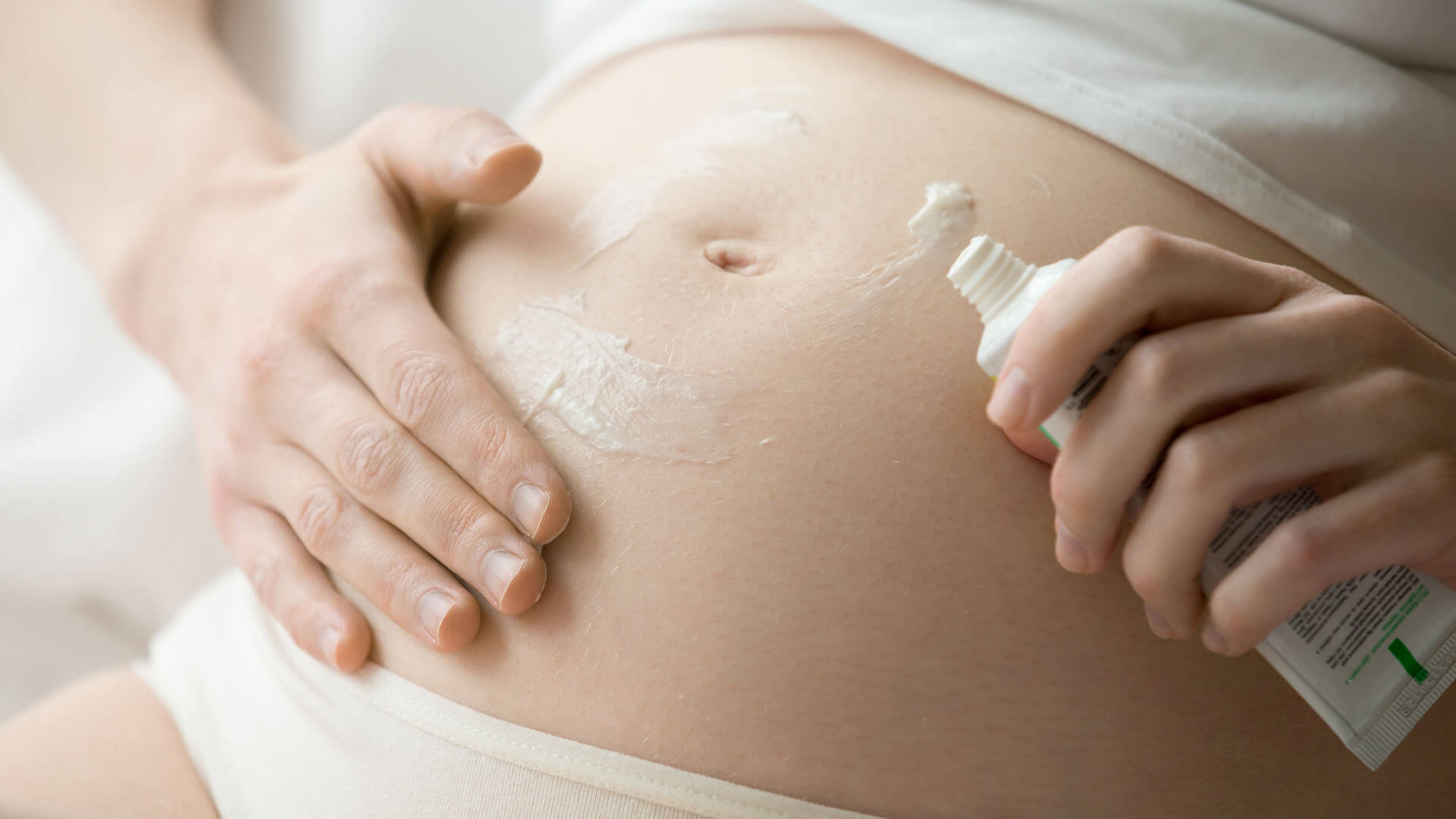That radiant glow accompanies pregnancy, but it’s accompanied by a whole line of hormonal swings that will have your skin oscillating. You lie awake at night with new issues like acne, melasma (the “mask of pregnancy”), or sensitivity. Skincare might be tricky enough to decipher, and pregnancy is the time when it’s just imperative that you come to terms with what products are safe for baby and you.
This pregnancy skin changes myth guide will teach you what ingredients and products to embrace and which ones to avoid so your skincare routine is efficient and safe.
Normal Skin Changes During Pregnancy
Your body is doing miracles, and the following can be observed on your skin:
- Breakouts of Acne: Boosted androgens can lead to breakouts as well as overproduction of oil, even though you’ve never had a breakout of any form in your life.
- Melasma (Chloasma): Dark, blotchy areas that you can get on your face as a result of overproduction of melanin. Sunlight makes it worse.
- Stretch Marks: As your skin stretches to fit your expanding baby, you can develop stretch marks on your belly, breasts, hips, and thighs.
- Increased Sensitivity: Your skin could be more sensitive to products you’ve used for years without ever noticing anything was wrong.
- Dryness or Oiliness: Your skin type could shift to oilier or drier than normal.
These are mostly reversible, but it’s reassuring to know what’s happening so that you can modify your skincare regimen appropriately. As you get ready for your baby’s arrival in every other way, from learning about antenatal counseling in the future, taking care of your own body is important too.
Skincare Ingredients to AVOID During Pregnancy
Some ingredients pass through the bloodstream and might make their way to your baby during pregnancy. Better safe than sorry. Some of the most significant ingredients to steer clear of are:
Retinoids (Retin-A, Retinol, Tretinoin, Isotretinoin, Adapalene): These are potent vitamin A derivatives, found in anti-aging and acne treatments. Large amounts have been linked to birth defects.
Salicylic Acid (high strength): While low-strength topical salicylic acid (e.g., in some cleansers) is safe, most authorities say that higher strengths (e.g., in peels or oral preparations) are contraindicated. Go ask your doctor or dermatologist.
Hydroquinone: While this melasma-treating drug is commonly prescribed, it is quite high in absorption, and its safety in pregnancy has not been adequately proven.
Phthalates: Usually found in nail polish and imitation perfumes. They are probably hazardous and have some indication that they might be. Steer clear of “phthalate-free” products.
Formaldehyde: Used in some keratin treatments and cosmetics as a preservative. A known carcinogen and should be avoided.
Some Essential Oils: Generally safe, but certain essential oils (rosemary, clary sage, jasmine, and excessive quantities of sage) are known to be problematic for use during pregnancy. It is better to take professional advice from an aromatherapy expert or your doctor.
Just in case that if ever there is ever any confusion about any ingredient, it is always best to consult your obstetrician or dermatologist. The same degree of caution is no different than that of a vigilant neonatologist in Dubai would scrupulously keep a lookout for the first indication of distress in a newborn.
Safe Skincare Routine and Ingredients to Use During Pregnancy
The good news is that there are plenty of wonderful and safe methods to care for your skin while pregnant!
Gentle Cleansers: Use fragrance-free, gentle cleansers. Glycerin or hyaluronic acid in cleansers will moisturize the skin.
Moisturizers: Moisturize freely to combat dryness and boost skin’s elasticity. Use moisturizers with hyaluronic acid, ceramides, shea butter, and coconut oil.
Sunscreen (Very Important!): Sunscreen is extremely important, especially to prevent worsening of melasma. Apply a broad-spectrum mineral sunscreen with a minimum SPF of 30 containing zinc oxide or titanium dioxide.
Vitamin C Serums: Topical vitamin C is an extremely well-tolerated antioxidant that is used to brighten the skin and stimulate collagen.
Azelaic Acid: Typically prescribed as a pregnancy-safe alternative to treat acne and rosacea.
Glycolic Acid and Lactic Acid (AHAs): Generally safe in low concentrations (normally below 10%) for peeling and treating pimples, but use only on your doctor’s recommendation.
Niacinamide (Vitamin B3): An anti-inflammatory compound that can be used to treat acne, redness, and epidermal barrier function of the skin.
Caring for your skin is self-care, and pregnant women require self-care. Although we’d like to celebrate supporting new mothers in articles like “The Importance of Breastfeeding Support for NICU Mothers,” you need to be serious about caring for yourself with healthy habits.
General Pregnancy Skincare Tips
- Patch Test New Products: Since your skin can be more sensitive, always apply a new product on a small area of skin before you use it.
- Stay Hydrated: You should drink lots of water for your overall health and your skin as well.
- Maintain a Balanced Diet: A balanced diet comprising fruits, vegetables, and healthy fats is good for the health of your skin. Your diet should be balanced, as always. We stress when discussing Pediatric Metabolic Syndrome.
- Read Labels Correctly: It is a good practice to read product labels before applying or purchasing any product on your skin.
- Professional treatments: Spa treatments must be handled with care. Facials are generally fine, but avoid chemical peels that contain high levels of banned ingredients, microdermabrasion if sensitive, and body wraps or saunas that will ultimately heat up your body. Let your aesthetician in on it.
When to See a Doctor?
If you develop a bad rash, acne that persists, or other severe skin conditions when you’re pregnant, see your dermatologist or obstetrician. They can recommend a strong, safe medication that’s right for you.
Healthy Skin Tips to Treat Your Skin Wisely When You’re Pregnant
Pregnancy is when you must double up on maintaining what goes on your body, as well as in your body. Pregnancy-friendly skin products and regimens enable you to have healthy, glowing skin while keeping your baby safe.
Problems with pregnancy-safe products or other pregnancy wellness concerns?
Dr. Olfa Koobar and staff are committed to caring for mothers throughout pregnancy and beyond. Make an appointment to review your case and establish a healthy experience for you and your baby.




